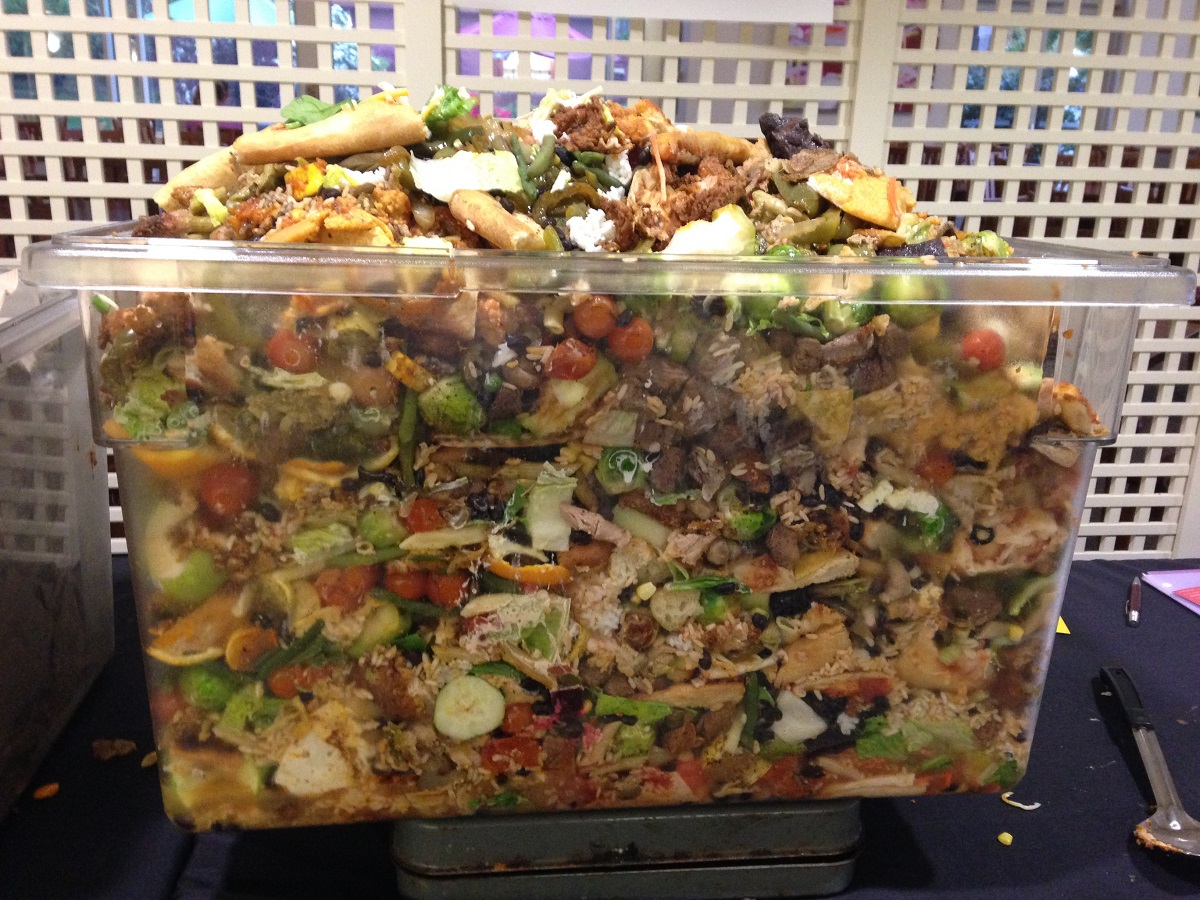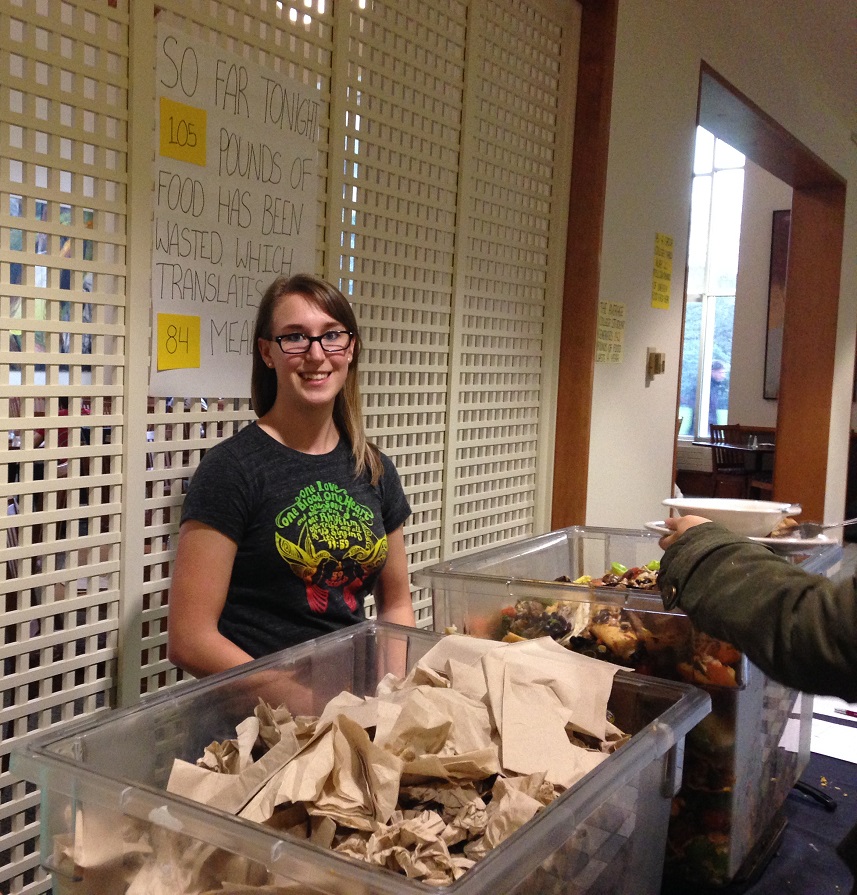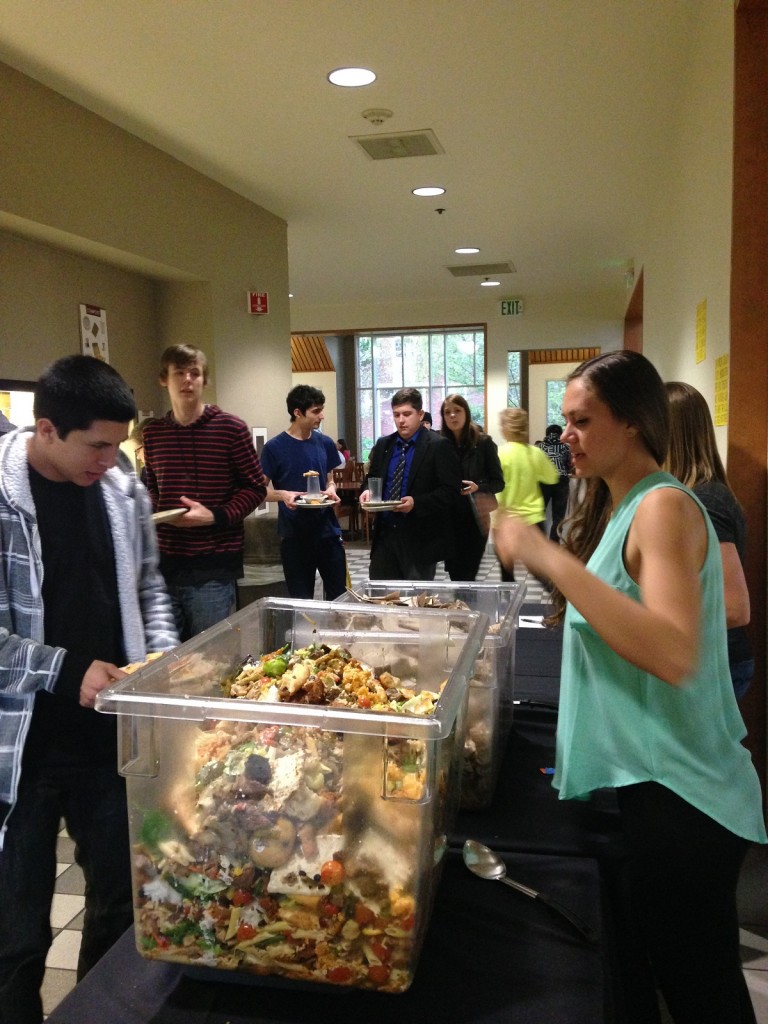A Clear Reminder About Food Waste Sparks Conversation

The overflowing bin of food waste at the end of the night – 140 pounds of it.
One Tuesday last year, instead of putting their plates on the tray return and watching their food waste magically disappear from their sight, Willamette University students eating dinner in Goudy Dining Hall came to a table and scraped their waste into giant clear bins — food scraps in one and napkins in another. They were taking part in what we call a “Clean Your Plate” or “Weigh the Waste” campaign organized by Bon Appétit in partnership with Maya Kaup, the student leader of the Food Recovery Network (FRN) chapter at Willamette University.

FRN president Maya Kaup spent the evening explaining to students the purpose of weighing the waste and answering questions about food recovery
Maya made signs that displayed statistics about food waste and hunger, and we used one poster to keep a running count of the number of pounds of food that had been wasted and translated that into the number of meals that could have been donated if students hadn’t taken food that they wouldn’t eat.
Normally, students put their plates with food scraps on the tray return, and they simply “disappear.” That Tuesday, we broke the routine and created a striking visual reminder of how all of that adds up and encouraged a conversation about food waste.
Maya and freshman Food Committee representative Layla Flint brought students over to our table, engaged with them, and even hustled over to snag the few plates that somehow ended up on the tray return so we would not miss a scrap of food.
Overall, 140 pounds of food were wasted, which translates to over 110 meals worth of food discarded by about 700 students that came in for dinner. The bin was positively overflowing by the end of the night. And this was on a Trayless Tuesday, where there is significantly less waste than on the other nights where students can collect much more food at one time on their trays.

Student Food Committee Rep Layla Flint explains what we are doing
The response from students was overwhelmingly positive — several thought the event was so thought provoking that they asked if it could happen every night. It prompted questions about composting and food recovery, and one student even asked us if he could take all of the barely used napkins and use them! (We didn’t let him, but we all understood his desire.) The conversation continued after the event, spurring a slew of Facebook posts and conversations about food waste.
The goal was achieved: We want students to really think about how quickly food waste adds up and hope that they take only as much food as they will eat. What if they’re trying something new? Ask for a “tasting” portion to start, and then decide if they want more. Food scraps get composted, which is way better than going into the landfill, but we’d still like to avoid composting food that could have been eaten. The principle of curbing food waste applies to everyone at every age in every setting. Share your ideas of how to cut back on what you waste in the comment section!